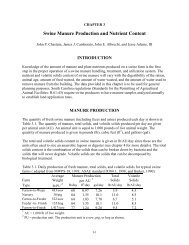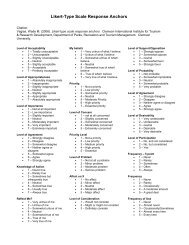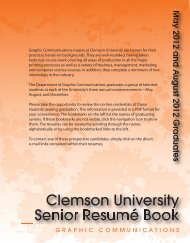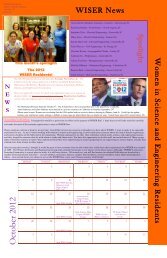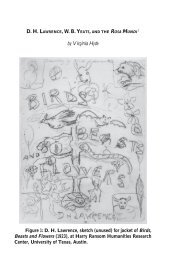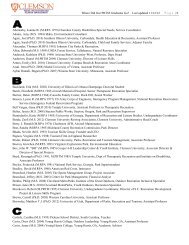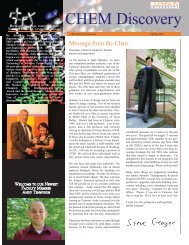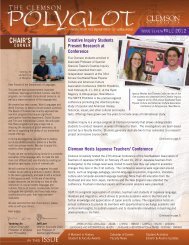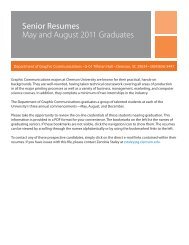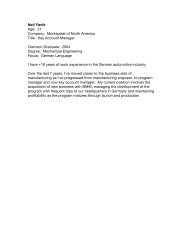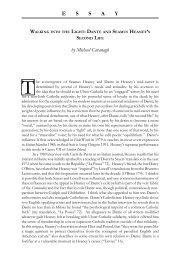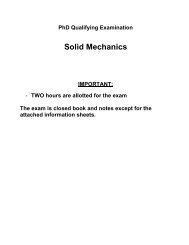Woolfian Boundaries - Clemson University
Woolfian Boundaries - Clemson University
Woolfian Boundaries - Clemson University
You also want an ePaper? Increase the reach of your titles
YUMPU automatically turns print PDFs into web optimized ePapers that Google loves.
142 WOOLFIAN BOUNDARIES<br />
would be on her knees—the Duke had died tragically at Woburn; Mrs Dolmetsch<br />
would be telling how she had found her husband in bed with the parlour-maid.<br />
(MOB 142)<br />
In contrast, Bloomsbury, Monk’s House, and Charleston became associated with pastoral<br />
and Shakespearian comedies, to Vanessa Bell she writes:<br />
Nessa will come across with holes in her stockings—Quentin will come across<br />
with a hole in his trousers. I shall think, “How Shakespeare would have loved<br />
us!” for this sort of thing, the gramophone playing Mozart, the stars, the heat,<br />
the combination of shabbiness and splendour. (L3 416)<br />
Th e tragic mode was reserved for Woolf’s darker wishes. To Edward Sackville-West, she<br />
writes: “your aunt’s behaviour could only be tolerated in an Elizabethan play. Th at she<br />
may take a dagger to her own throat or drink broken glass is rather my hope, I admit”<br />
(L3 458). As usual, Woolf is not content to follow the formula of each genre to the letter.<br />
Th us, the melodrama at Hyde Park Gate is both amusing and revolting; the comedy of<br />
manners is funny, but stifl ing; the Charleston and servant farces are witty, but irritating;<br />
the tragedies are terrible, yet delightful.<br />
Woolf enjoys her vantage point in the audience at these dramas and often takes a<br />
comically obscene delight in the unfolding action:<br />
Bloomsbury is ringing with two great excitements: 1: Julian Morrell is engaged<br />
to a son of old Vinogradov: 2: Miss Bulley—the stormy petrel of revolution—is<br />
engaged to her Cousin Armitage. You will be delighted to hear that Ottoline<br />
and Philip are behaving scandalously…dislike the young man who is penniless;<br />
and ignore the whole aff air. Julian is behaving with great spirit, and it is said that<br />
Garsington presents a scene of unparalleled horror. Needless to say, I am going<br />
to stay there. (L3 269)<br />
However, Woolf’s position as audience member was perfected under duress. Her memories<br />
of George Duckworth’s socializing when Woolf was in her teens left her feeling<br />
as a tramp or gypsy must feel who stands at the fl ap of a tent and sees the circus<br />
going on inside. Victorian society was in full swing; George was the acrobat who<br />
jumped through hoops, and Vanessa and I beheld the spectacle. We had good<br />
seats at the show, but we were not allowed to take part in it. We applauded, we<br />
obeyed—that was all. (MOB 132)<br />
However, the ability to observe serves a vital function in terms of her literature when an<br />
event is translated from fi rst-hand experience to diary entry, to acquaintance via letter, to<br />
public via novel. Woolf was as dependent on observation as she was on participation for<br />
the creation of her lived reality.<br />
Reading Woolf’s life through the framework of theatre presents a writer who was<br />
keenly aware of life’s dramatic dimensions and of the self as performance; “a life-actor in



